What is a Circadian Sleep Disorder?
Circadian sleep disorder is a medical disorder characterized by chronic interruptions (at least one month) in a person’s sleep patterns. This stems from abnormalities in their circadian rhythm, which determines the length, timing and/or rigidity of their sleep-wake cycle relative to their day-night cycle.
Circadian Rhythm:
Often referred to as our “body clock”, a circadian rhythm is a biological cycle generated by our suprachiasmatic nucleus (SCN), located in the anterior hypothalamus of our brain. It regulates our body’s physiological processes, such such as sleeping, eating and waking. Circadian rhythms roughly follow a natural 24-hour cycle, and can be modulated by external stimuli such as sunlight, and temperature. Following exposure to stimuli (especially light - the most potent stimulus), the SCN regulates the secretion of melatonin into the blood. High levels of melatonin encourage the onset of sleep.
Sufferers of circadian rhythm disorders have either a malfunction in their internal body clock as regulated by their SCN, or a misalignment between their internal body clock and external environment.
As a result, people with circadian sleep disorders often complain of insomnia when they wish to be sleeping, and/or excessive sleepiness when they wish to be awake.
At Pulmonary Associates of Brandon our sleep specialists have experience with the various forms of circadian sleep disorders, and can work with sufferers to develop unique treatment plans that work to align the person’s internal body clock with their daily schedule, or enable sleep when needed.
Common Circadian Sleep Disorders
& Who They Affect:
Delayed Sleep Phase Syndrome (DSPS)
Common in: adolescents, young adults
Characterized by an inability to fall asleep until very late at night, DSPS sufferers have difficulty waking up in the morning and may experience excessive sleepiness throughout the day. DSPS seems to be a result of decreased response to light stimuli, increased response to the sleep-delay triggered by evening light, and longer-than-normal circadian cycles. This can have both genetic and environmental basis. Though DSPS does not seem sex-specific, among adolescents it may occur at an older age in males than in females, with males reaching their peak at age 21 and females at age 17.
AdvanceD Sleep Phase Disorder (ASPD)
Common in: middle-aged and older adults
ASPD is characterized by early evening bedtimes and early morning awakenings. It is believed that this irregular sleep pattern is the result of a shortened circadian cycle, and be an inherited genetic condition.
Non 24-Hour Sleep-Wake Disorder (N24SWD)
Common in: people with a visual impairment
People suffering from non 24-hour sleep-wake disorder have chronic patterns of sleep-wake cycles that are not synchronized to the 24-hour environment. Over time, their sleep times may get progressively later and later, so at some points in time the person is sleeping during the day and they eventually cycle back to a nighttime bedtime. In both blind and sighted individuals, men are affected more than women, at a ratio of 2.6/1.30.
Irregular Sleep-Wake Rhythm Disorder (ISWRD)
Common in: older adults, dementia sufferers, people with developmental disorders
Characterized by a disorganized sleep and wake pattern, ISWRD sufferers experience multiple sleep and wake periods throughout the 24-hour cycle. It is believed that the degeneration of SCN neurons and decreased exposure to stimuli result in a weakened circadian cycle oscillation and the resulting disorganization of circadian rhythms. In the case of older adults, lifestyle factors play a role. Institutionalized elderly patients get significantly less exposure to light both in their institutions, and through the development of age-specific eye diseases such as cataracts. Genetic factors have also been implicated in the development of ISWRD with Alzheimers.
Shift Work Disorder (SWD)
Common in: shift workers (such as doctors, nurses, law enforcement officers, military officers)
Shift schedules, that may include long working periods or nighttime working period, disturb the body’s natural sleep-wake rhythm, and the person has difficulty adjusting to their required schedule. Approximately 20 percent of the developed world workforce is engaged in shift work, and and SWD is prevalent among 10 percent of the shift-work population. Men are at a higher risk for SWD.
Circadian Sleep Disorder Treatments:
Treatment for circadian sleep disorder will depend on the type of disorder, and the degree to which a person’s life is impacted by the disorder in question.
The following treatment options may be pursued:
Behavior Therapy:
This involves maintaining regular sleep-wake times, avoiding naps, engaging in a regular exercise, avoid stimulants such as caffeine, nicotine, and stop all stimulating activities a few hours before bedtime. People with delayed sleep phase syndrome should avoid bright TV and computer screens, while those with advanced sleep phase syndrome should increase light exposure in the evenings by keeping lights on in the home or spending time outdoors.
Bright Light Therapy:
This therapy is used to advance or delay sleep by resetting the circadian clock. Use of medications such as melatonin, wake-promoting agents, and short-term sleep aids may be used to adjust and maintain the sleep-wake cycle.
Chronotherapy:
This involves the progressive advancement or delay of sleep time. It can take several weeks to shift the sleep-wake cycle.
The solution? Consider a sleep study!
A sleep study is the most effective means of diagnosing your specific sleep disorder. At our sleep clinic, sleep specialists monitor our patients during sleep and measure their levels of oxygen, how often they stop breathing, how often they snore, and other sleep characteristics. An EEG monitors your sleep stages and cycles of REM and nonREM or NREM. This can help us diagnose the particulars of your circadian sleep disorder, or discover physical impediments to sleep, such as a deviated septum or obstructive sleep apnea.
Once your specific sleep issues are diagnosed, we can develop comprehensive treatment plans that seek to normalize your sleep-wake cycles and circadian rhythms. Come visit the premier sleep clinic in Tampa.
